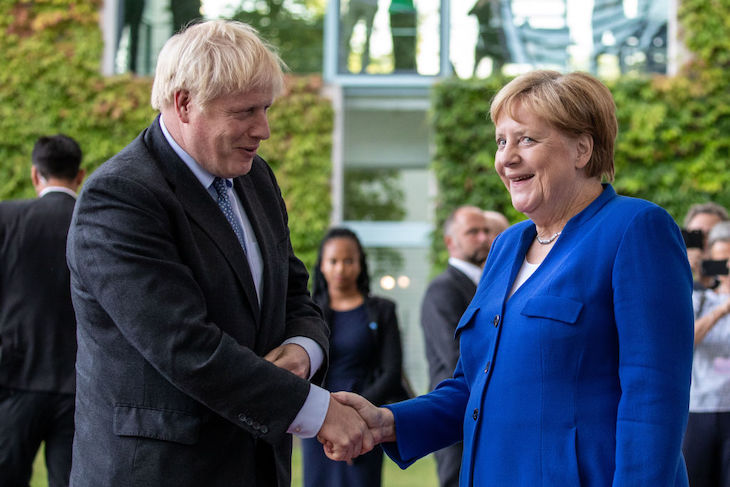There is a strange dual narrative on Brexit here in Berlin. On the surface, nothing has changed. Donald Tusk’s comments last week, that Brexit has been ‘one of the most spectacular mistakes’ in EU history, speak for many Germans who have looked upon the UK with ridicule and pity since 2016. Germans have relished in the farce that is Brexit, delighting in ‘the demise of a once great nation’, while hoping that its difficulties will make Britain think again. Indeed, with each delay and possible victory for Jeremy Corbyn comes more and more hope in Germany that the revocation of Article 50 – or at least a second referendum – becomes inevitable.
Yet, in reality, everything has changed. First, like us, Germans are tired of Brexit. They are beginning to feel that the UK has been punished enough. Brexit is simply no longer any fun. Yes, there has been a deep desire to see the UK suffer for its sins, but somehow the Germans have been given far more blood than they bargained for. The Brexit comedy has become one big soap opera; a tragic stalemate of completely incomprehensible parliamentary antics. And if we Brits can’t understand it, you can imagine why the Germans can’t either. I always see a beautiful perplexity in the eyes of my German friends whenever they ask me about Brexit. They simply can’t understand why we can’t make up our minds.
There is, therefore, a quiet acceptance within German government circles that Boris Johnson’s Brexit is simply the easiest way forward now. The last thing that Angela Merkel wants is Jeremy Corbyn creating yet more chaos and uncertainty for the UK-German future relationship (let’s also not forget that she leans politically far closer to Johnson than Corbyn). She anyhow cannot afford to waste yet more time on another Withdrawal Agreement whilst her own government teeters toward another election itself. And as tasty as it might seem to Europhile Germans for Jeremy Corbyn to keep the UK in (at least) the Customs Union and Single Market or (at most) full EU membership, the clarity that Boris Johnson offers is exactly what Germany needs in order to move forward and facilitate smooth and swift trade discussions. After all, the sooner we have those finalised, the better it obviously is for both the UK and Germany.
But let us not forget why we have this chance. Against a barrage of negativity, Johnson has a new deal, something that everyone in the EU – including the Germans – said would not be possible. How many times did we hear (usually in a lovely French or German accent) ‘there will be no renegotiation’?
We should not underestimate the total transformation in attitudes towards Boris Johnson over the past 100 days here in Berlin. I see a begrudging respect for Boris’s command of the renegotiations, as I predicted in July. His visit to Berlin was already an important turning point. Whilst the German press was expecting Trump-like blunders from Boris the clown, the populist, the morally corrupt upper class liar – they had very little to feed on after his visit, and Angela Merkel was somewhat charmed as a result. A new relationship was formed and Boris got the window of opportunity he was looking for.
So why was Boris so sure that all those renegotiation rebuffs from the EU were just hot air? He understood that the EU – but particularly Berlin – wants to avoid any notion of responsibility for Brexit. They dread being blamed for a no-deal exit and they certainly don’t want to be accused of contempt for the UK’s democratic processes or representatives.
It was therefore never in doubt that Boris would be able to reopen the negotiations, just like it was never in doubt that the EU would always avoid no deal. This is why the EU will continue to accommodate the UK over the coming months regarding the final trade deal. Of course, that doesn’t mean giving Boris a blank cheque, but it does give him much more room for manoeuvre. We need to understand that Germany now sees itself more as a facilitator of Brexit, in which it just plays by the rulebook. So, as long as the EU keeps their rules intact (on the single market and customs), Angela Merkel’s pragmatism will break through all the EU Commission’s rhetoric. That’s why I’m convinced that Boris can get Brexit done by December 2020.
Joolz Gale is a British conductor and contributor based in Berlin






Comments